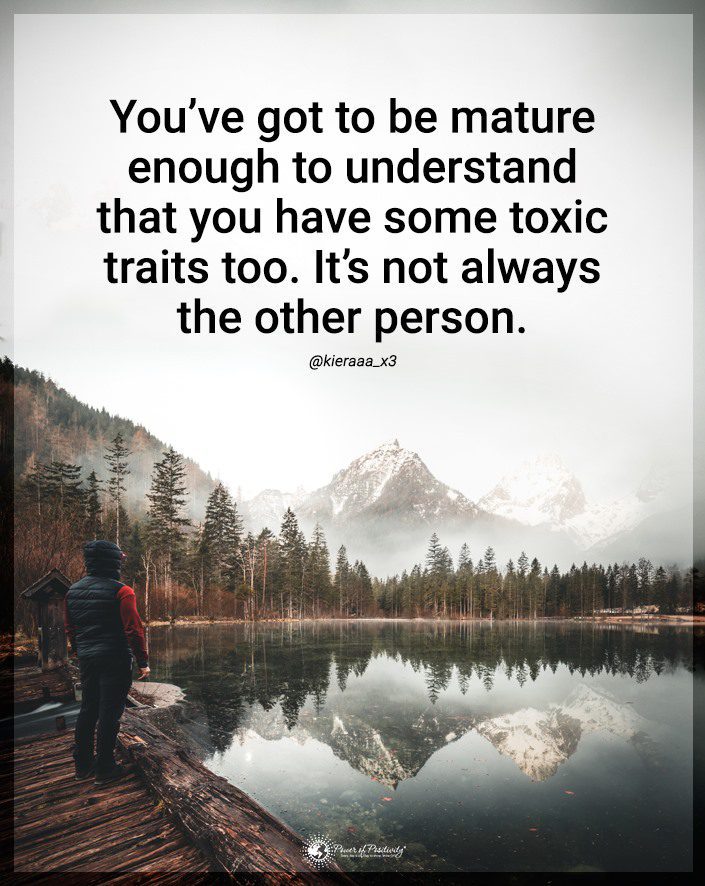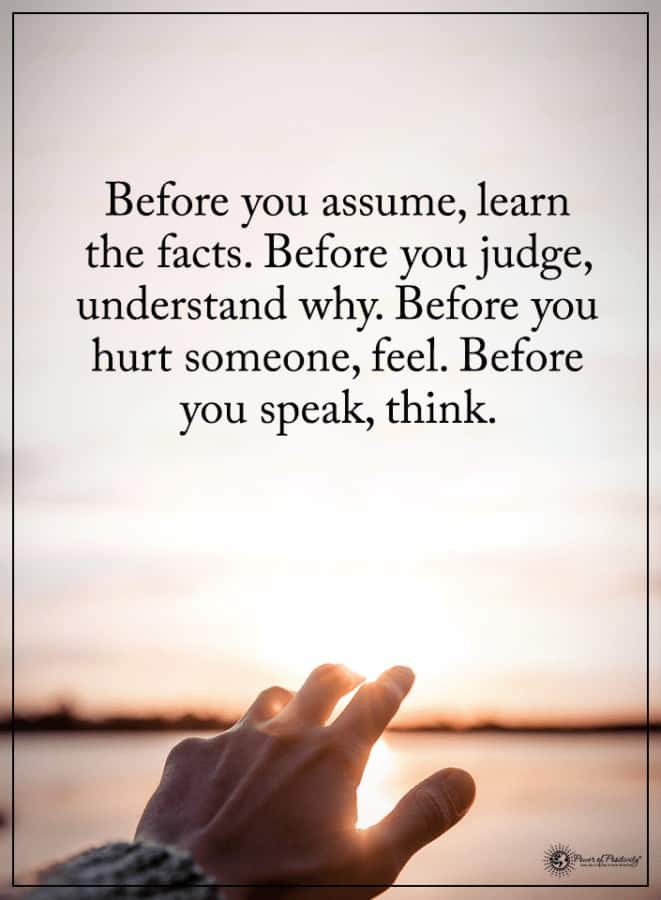It’s always nice to know that you have someone in your corner that will defend you no matter what you’ve done. It’s the very reason the saying “blood is thicker than water” remains so popular. Family sticks together no matter what! But do you also make excuses, enabling poor behavior?
However, while it’s good to protect someone occasionally, it can create a dependency pattern if it becomes a habit. Your actions can enable someone when you constantly make excuses for their bad behavior. How many times have you defended your child to the principal or another parent, but you still ground them when they get home?
The key is to put on a good front so that the rest of the world doesn’t see your family as broken or imperfect. However, you still need to take care of the issue behind closed doors. If you let your child get away with being disrespectful to teachers and other authoritative figures, it’s going to come back to bite you later.
When Defending Poor Behavior Becomes Enabling
 It’s okay to defend your family and friends, but sometimes it can be prolonging the inevitable. For instance, assume you work in a factory with your sister. Your sister is constantly messing up and is about to lose her job.
It’s okay to defend your family and friends, but sometimes it can be prolonging the inevitable. For instance, assume you work in a factory with your sister. Your sister is constantly messing up and is about to lose her job.
You try to be protective of her, so you take the wrap for her last blunder. When people ask what’s going on with her, you make one excuse after another. What no one knows is that she has a drug problem you’re trying to hide.
While you want to help your sister keep her job, are you assisting her by covering up a severe dependency issue, or are you enabling the condition to continue? Losing her job is bad, but it’s way better than losing her life.
While many folks feel justified in their decisions to cover up behaviors, it’s not helping. Instead, it only makes the situation worse.
Here’s a Pop Culture Point of Reference
Here’s a popular program that demonstrates this harmful enabling perfectly.
My 600 Pound Life is a top-rated television show that’s on TLC. Dr. Nowzarden is a brilliant bariatric surgeon that works with St. Joseph Medical Center-Houston. He treats patients between 600-800 pounds who are considered severely morbidly obese.
One of the fascinating parts about extreme obesity is the enabling aspects that often occur. There is almost always someone who is buying the food and enabling the people who seek help from Dr. Nowzarden. While they’re not verbally making excuses, they do it with their actions.
In many instances, these people are in serious condition and will die if they don’t get help. Sadly, family members and friends sneak them high-calorie foods. They justify their actions by thinking they’re hungry. They will be mad or not sustain themselves on the 1,200 a day diet.
There are times when you can and should stand up for those you love. On the other hand, you might need to step back and let the consequences teach them life lessons. How can someone grow and become better if people make their toxic behaviors acceptable?
Fifteen Reasons Why People Make Excuses for Their Friends and Loved Ones
If you’re constantly in defense mode for your family, you need to examine the rationale behind these motives. Ask yourself if you’re helping or hindering them? Here are the fifteen most common reasons why people make excuses for their loved ones.
1. They Fear Punishment
No one wants someone they love to get into trouble. Many people will take the rap or make up an excuse to cover up a mistake. However, some will go as far as lying to help cover their tracks.
While protecting is one thing, it’s never okay to lie for another person. The truth of the matter will always come out, and then you will look just as guilty as they do.
2. They Live in Denial
Part of the reason you may not have wanted to tell on your sister in the example above is that you live in denial. Many people want to escape reality because it’s easier to believe a lie than face the truth. Some people believe in the “Out of sight out of mind” philosophy.
If you don’t see her do harmful substances, then maybe it’s not true. Sadly, in your heart, you know she is in trouble. Your focus should be more on getting her help than covering up for her.
3. They Feel Sorry for Them
Perhaps one of your family members lies constantly. You may feel sorry for them and the problems they have in life. They lie because they feel like they haven’t accomplished anything, and they have low self-esteem.
Many people will find themselves making excuses because they feel sorry for the person in this predicament.
4. They Don’t Want to Cross Them
If your marriage is on the rocks and you suspect your spouse of cheating, you may not want to confront them. Others don’t know that your partner has a habit of becoming quite aggressive when they’re enraged, so you would rather be quiet. Living in fear is no way to live your life, but it’s one reason why so many people come up with colorful excuses.
5. They’re Ashamed
Perhaps you don’t want to admit that your spouse is having an affair because it’s too painful, and you’re ashamed. You would rather not let anyone know about this secret part of your life. Shame can be a big reason people will make excuses and hide behind lies, as they want to keep others from knowing the truth.
 6. They Want to Avoid Hurting People
6. They Want to Avoid Hurting People
Sometimes the truth is hard to handle, such as finding out your spouse is cheating or addiction. Many people will cover up lies and defend others because the truth is more painful than the lies they tell.
7. They Don’t Want to Fight
Sometimes being honest and not accepting the situation for what it is can cause significant arguments. You will often see parents trying to keep things from their spouse or children because they can’t bear tension in their family. Avoiding an altercation is one primary reason why people cover up some things.
8. They Fear Loss
Making excuses for someone isn’t always done because it’s the best option; it’s just because someone is afraid of losing this individual. If you call out this person on their issues or side with others against them, the pain of losing them may be too great to handle.
9. They Want to See Good
Some folks don’t live in denial about their loved ones, but they choose to see the good rather than the bad. When someone brings up their issues, they will talk about all the good in them rather than what they need to work on.
10. They Don’t See the Issue As Significant
Everyone sees things differently. While one person might judge someone and say what they did was horrible, sometimes, it’s might not be that bad. Individuals might come up with excuses for their loved ones when the situation isn’t as bad as it’s being made to be.
11. They Want to Manipulate Others
It often happens that people make excuses because they’re helping their loved one manipulate someone. They may be involved in their scheme, and they have their back no matter what the issue.
12. They Don’t Want People to Think Bad of Them
In the above illustration, if other coworkers found your sister to have a dependency issue, then they might look at her differently than they do now. While she may come across as accident-prone, it’s better than having them think all the worse things about someone you love.
13. They Know How Fragile They Are
Many folks will embellish their life or lie about their accomplishments to make themselves appear grander. For instance, they may say their job pays more or hold a higher position than they do. However, creating an excuse for their lies may be warranted because you know how low their self-esteem is, and you don’t want to break them further mentally.
14. To Justify Bad Behaviors, They’re Involved in
It’s effortless to make excuses for someone when you’re involved in bad behaviors. It’s easy to read an article about a celebrity and pass judgment, but you find it’s much harder to pass judgment when you’re somehow tangled in the web they weave.
15. They Have Co-Dependent Tendencies
Someone with co-dependent tendencies is more willing to make excuses for others than someone self-assured. This person is also probably plagued with dysfunctional communication, concerned about pleasing others, and afraid of being rejected or abandoned.
 Final Thoughts on Why People Make Excuses for Others
Final Thoughts on Why People Make Excuses for Others
The Karpman Drama Triangle is a theory that was created by author Stephen Karpman M.D. He explains this concept in his exciting book A Game Free Life. He explains that while it seems harmless to make excuses for people and their behaviors, it often comes with severe consequences.
You create patterns of dysfunction when you enable someone in their drama. While you want to have your family’s back and support them, you must learn when it’s helping and hindering them.




















